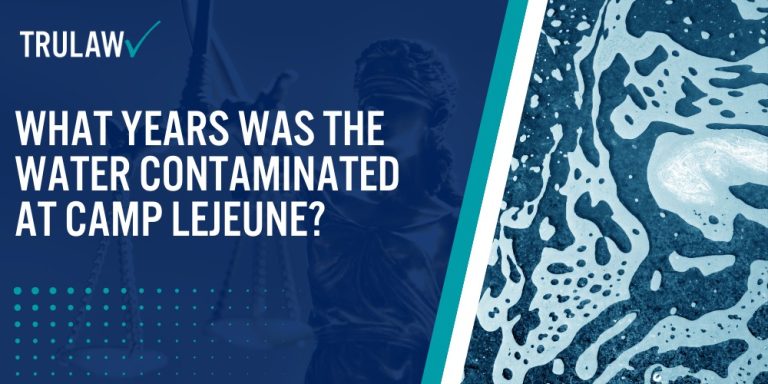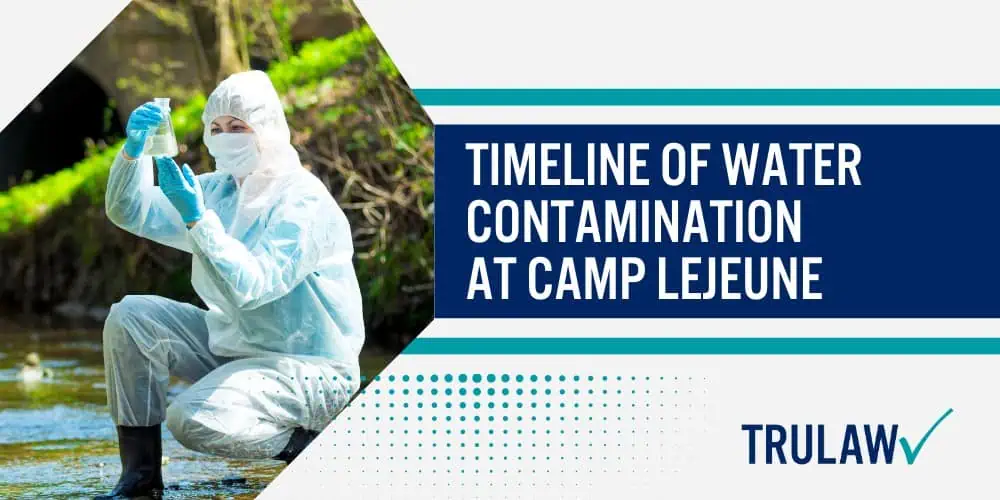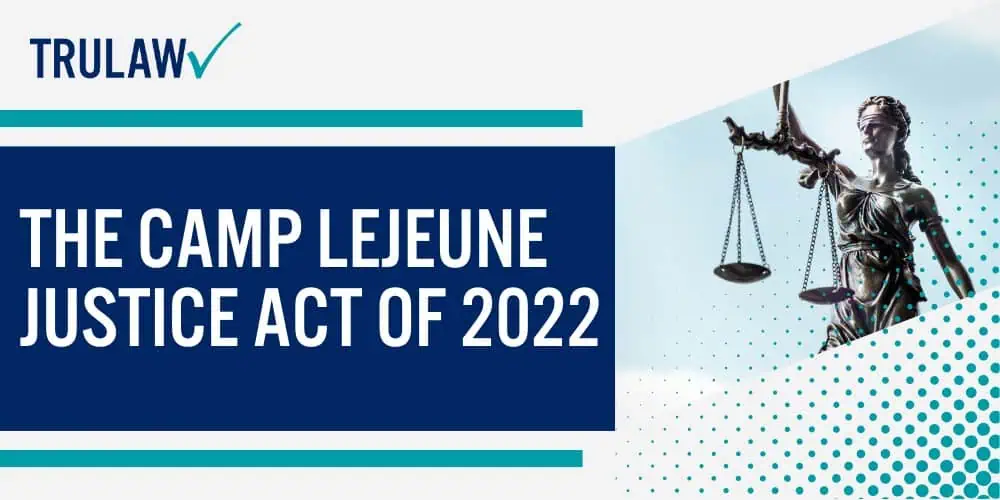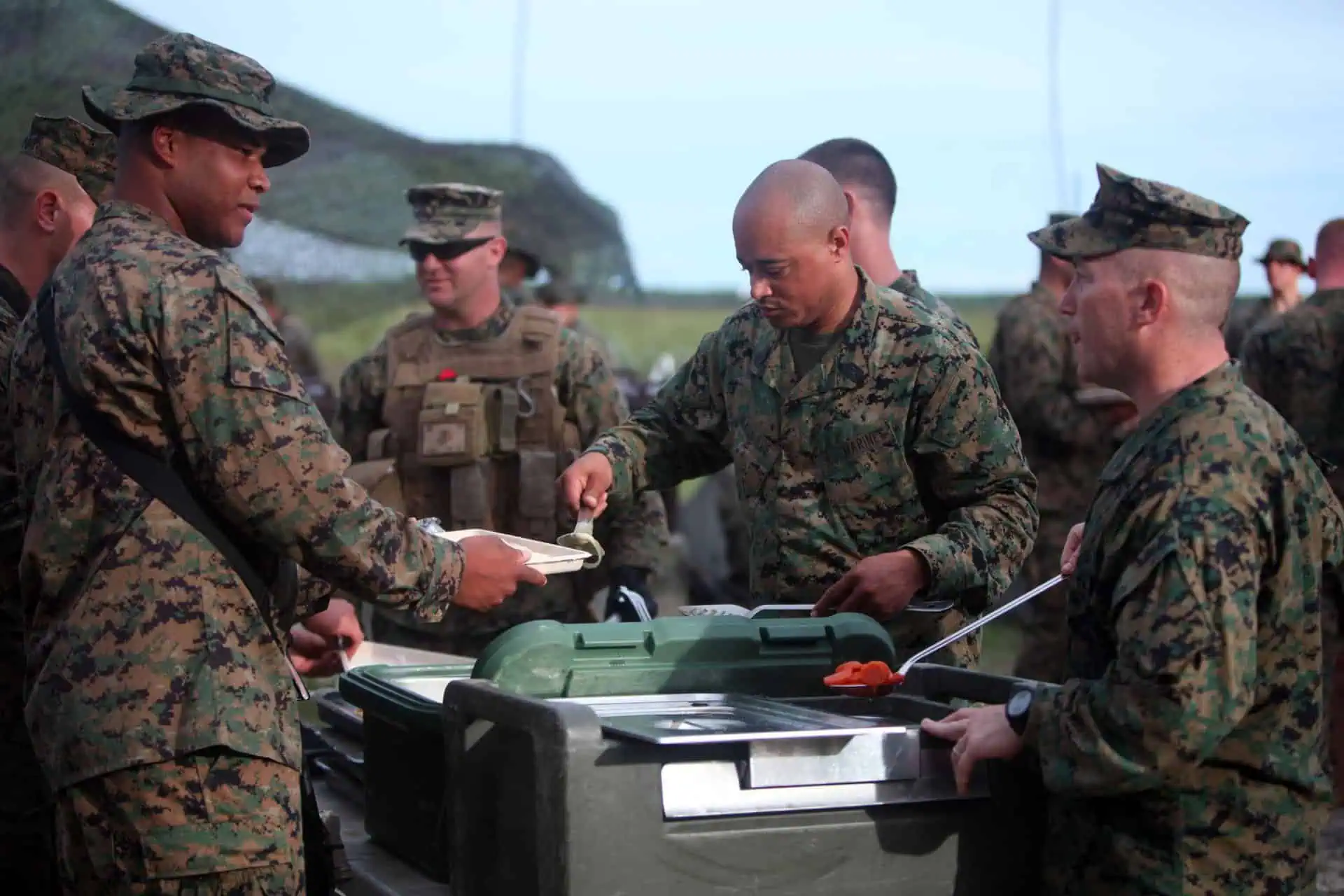What Years Was the Water Contaminated at Camp Lejeune?
- Last Updated: June 12th, 2025

Attorney Jessica Paluch-Hoerman, founder of TruLaw, has over 28 years of experience as a personal injury and mass tort attorney, and previously worked as an international tax attorney at Deloitte. Jessie collaborates with attorneys nationwide — enabling her to share reliable, up-to-date legal information with our readers.
Legally Reviewed
This article has been written and reviewed for legal accuracy and clarity by the team of writers and legal experts at TruLaw and is as accurate as possible. This content should not be taken as legal advice from an attorney. If you would like to learn more about our owner and experienced injury lawyer, Jessie Paluch, you can do so here.
Fact-Checked
TruLaw does everything possible to make sure the information in this article is up to date and accurate. If you need specific legal advice about your case, contact us by using the chat on the bottom of this page. This article should not be taken as advice from an attorney.
What Years Was the Water Contaminated at Camp Lejeune? Let's Discuss.
Question: What years was the water contaminated at Camp Lejeune?
Answer: From 1953 to 1987, the water supply at Camp Lejeune was contaminated by a variety of dangerous chemicals, including TCE (trichloroethylene), PCE (tetrachloroethylene, also called perchloroethylene), vinyl chloride, and benzene.
The water contamination was found to be caused by numerous sources, and wells at multiple water treatment facilities on the base were affected.

Marine Corps Base Camp Lejeune is a 246-square-mile military training facility in Jacksonville, North Carolina.
Hundreds of thousands of people — including active-duty service members, their families, and civilian employees at the camp — were regularly exposed to these dangerous chemicals by bathing in the contaminated water and ingesting it prior to the retirement of the contaminated wells.
Following is a review of the history of water contamination at Camp Lejeune.
To learn more about a possible Camp Lejeune lawsuit and how TruLaw is helping victims, visit our website.
Table of Contents
Timeline of Water Contamination at Camp Lejeune
Camp Lejeune was first established in 1941.
In 1942, the drinking water system at Hadnot Point first began operations.
Approximately 11 years later, in 1952, development in the Tarawa Terrace area began, as did water system operations.
The Agency for Toxic Substances and Disease Registry (ATSDR) has estimated that water contamination began at the Hadnot Point water treatment facility in about 1953, while the water supply at the Tarawa Terrace water treatment plant first became contaminated around 1957.
Around 1980 or 1981, officials tested the water supply at Camp Lejeune for THMs, which are a collection of chemical compounds that the EPA has determined to be hazardous to the environment and to human health.
Ironically, certain chemicals interfered with the test results, and in 1982, those chemicals were found to be TCE and PCE, two of the primary water contaminants at Camp Lejeune from 1953 to 1987.
From 1982 to 1984, the Navy commenced an environmental cleanup initiative with the goal of determining which contaminated locations needed to be further investigated.
From 1984 to 1985, after specific toxins were detected in water wells near possibly contaminated areas, Camp Lejeune finally began to conduct a thorough inspection of all water sources on the base.

During the course of their investigation, they found that ten wells were found to be contaminated with various chemicals.
Those wells were immediately retired.
In 2012, Congress passed the Janey Ensminger Act, which entitles veterans’ family members to claim healthcare benefits through the Department of Veterans Affairs (VA) if they suffered certain health issues after being exposed to the toxic water at Camp Lejeune for at least 30 days between 1953 and 1987.
This act, which was signed into law by President Obama, created a “presumptive service connection,” meaning that family members of veterans who lived at Camp Lejeune for thirty days during the identified time period and were later diagnosed with cancer or other covered conditions could receive VA healthcare benefits without having to prove that their condition was caused by the contaminated water on the base.
However, the act does not entitle individuals who suffered harm at Camp Lejeune to bring a lawsuit against the government or any other negligent parties who were responsible for the contamination.
The Camp Lejeune Justice Act of 2022
In 2022, the Camp Lejeune Justice Act was introduced in the U.S. House of Representatives.
With its passing and signing into law, it allows anyone who served, lived, or worked at the camp for at least 30 days from August 1, 1953, to December 31, 1987, to file a claim with the federal government and recover compensation for medical expenses, lost wages, pain and suffering, and other losses.
Until now, veterans and family members, along with non-military civilian workers, have had no way to pursue legal action against the government or other negligent entities that contributed to the water contamination at Camp Lejeune.

In North Carolina, there is a statute of repose on lawsuits involving polluters.
Unlike the statute of limitations period for personal injury cases, which typically begins on the date of the injury, the statute of repose period actually begins on the date the negligent party first engaged in misconduct.
That statute of repose allows victims a mere ten years in North Carolina to file a civil suit for compensation.
In other words, the statute had passed long before the contaminated water was officially discovered.
As a result, thousands of veterans and civilians who were diagnosed with cancer or another type of serious illness after being exposed to contaminated water at Camp Lejeune were barred from pursuing compensation through the courts.
With the bill passing, the statute of repose will be lifted for these cases, and victims will have an opportunity to have their day in court.
If you were diagnosed with cancer or another serious health condition after serving or living at Camp Lejeune during the allotted time frame, visit the TruLaw Camp Lejeune Contaminated Water Lawsuit page and get an instant case assessment.

Managing Attorney & Owner
With over 25 years of legal experience, Jessica Paluch-Hoerman is an Illinois lawyer, a CPA, and a mother of three. She spent the first decade of her career working as an international tax attorney at Deloitte.
In 2009, Jessie co-founded her own law firm with her husband – which has scaled to over 30 employees since its conception.
In 2016, Jessie founded TruLaw, which allows her to collaborate with attorneys and legal experts across the United States on a daily basis. This hypervaluable network of experts is what enables her to share the most reliable, accurate, and up-to-date legal information with our readers!
Additional Camp Lejeune Water Contamination Lawsuit resources on our website:
Here, at TruLaw, we’re committed to helping victims get the justice they deserve.
Alongside our partner law firms, we have successfully collected over $3 Billion in verdicts and settlements on behalf of injured individuals.
Would you like our help?
At TruLaw, we fiercely combat corporations that endanger individuals’ well-being. If you’ve suffered injuries and believe these well-funded entities should be held accountable, we’re here for you.
With TruLaw, you gain access to successful and seasoned lawyers who maximize your chances of success. Our lawyers invest in you—they do not receive a dime until your lawsuit reaches a successful resolution!
AFFF Lawsuit claims are being filed against manufacturers of aqueous film-forming foam (AFFF), commonly used in firefighting.
Claims allege that companies such as 3M, DuPont, and Tyco Fire Products failed to adequately warn users about the potential dangers of AFFF exposure — including increased risks of various cancers and diseases.
Depo Provera Lawsuit claims are being filed by individuals who allege they developed meningioma (a type of brain tumor) after receiving Depo-Provera birth control injections.
A 2024 study found that women using Depo-Provera for at least 1 year are five times more likely to develop meningioma brain tumors compared to those not using the drug.
Suboxone Tooth Decay Lawsuit claims are being filed against Indivior, the manufacturer of Suboxone, a medication used to treat opioid addiction.
Claims allege that Indivior failed to adequately warn users about the potential dangers of severe tooth decay and dental injuries associated with Suboxone’s sublingual film version.
Social Media Harm Lawsuits are being filed against social media companies for allegedly causing mental health issues in children and teens.
Claims allege that companies like Meta, Google, ByteDance, and Snap designed addictive platforms that led to anxiety, depression, and other mental health issues without adequately warning users or parents.
Transvaginal Mesh Lawsuits are being filed against manufacturers of transvaginal mesh products used to treat pelvic organ prolapse (POP) and stress urinary incontinence (SUI).
Claims allege that companies like Ethicon, C.R. Bard, and Boston Scientific failed to adequately warn about potential dangers — including erosion, pain, and infection.
Bair Hugger Warming Blanket Lawsuits involve claims against 3M — alleging their surgical warming blankets caused severe infections and complications (particularly in hip and knee replacement surgeries).
Plaintiffs claim 3M failed to warn about potential risks — despite knowing about increased risk of deep joint infections since 2011.
Baby Formula NEC Lawsuit claims are being filed against manufacturers of cow’s milk-based baby formula products.
Claims allege that companies like Abbott Laboratories (Similac) and Mead Johnson & Company (Enfamil) failed to warn about the increased risk of necrotizing enterocolitis (NEC) in premature infants.
Here, at TruLaw, we’re committed to helping victims get the justice they deserve.
Alongside our partner law firms, we have successfully collected over $3 Billion in verdicts and settlements on behalf of injured individuals.
Would you like our help?
